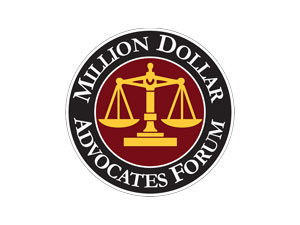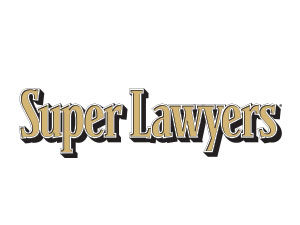$5.5M
$5.1M
$4.2M
$2.9M
$2.8M
$2.5M
$2.4M
$2.2M
What Is Considered Nursing Home Neglect?
According to government statistics, there are approximately 1.5 million nursing home residents in the US. But, loving and compassionate care is not the norm, and elder abuse is at an all-time high. Many nursing homes are accused of focusing on revenue as they operate with an insufficient number of under-qualified staff with inadequate training. Systemic nursing home negligence is a serious issue, and nursing home malpractice, medical neglect, patients exhibiting advanced bedsores, unexplained bruises, and poor hygiene is sadly all too common.
What Constitutes Malpractice in a Nursing Home?
Family members may begin to see signs of elderly abuse and medical malpractice, including a lack of proper medical oversight, bedsores, or prescribing the wrong medication, but proving liability can be complicated. A qualified lawyer can help the family navigate signs of medical neglect and signs of abuse to determine if the situation qualifies as a nursing home malpractice case.
What Is Considered Nursing Home Abuse?
Nursing home abuse describes a broad spectrum of abusive behavior, including medical neglect, medical mistakes, inadequate safety protocol, emotional abuse, physical abuse, failure to provide routine care, financial abuse, and sexual abuse. Patients who experience substandard nursing home care may qualify for a nursing home malpractice case, which would be filed against the residential facility and staff members. Nursing homes may be held responsible for the following conditions:
Failure to Comply with Health and Safety Policies
Nursing homes must adhere to federal health and safety policies, including maintaining a clean and sanitary condition in the resident’s room and the common areas.
- The nursing home is responsible for hiring qualified staff who pass a background check, meet all state and federal requirements, and have a proper education
- Understaffing or employing inadequately trained staff may be considered negligent
Inadequate Supervision and Neglect
Neglect of the resident may cause medical and safety issues, including falls, broken bones, contusions, and bedsores.
- The patient must be protected and adequately kept safe from the risk of sexual and physical abuse from other patients, visitors, or staff
- Residential patients experiencing medical neglect or physical or sexual abuse may consider filing charges against the facility in a medical malpractice case
Inadequate Medical Care or Errors
The facility is required to provide adequate medical treatment; substandard care can harm the resident. Signs of medical malpractice may include:
- Pain and suffering or symptoms of confusion following a misdiagnosis or a wrong medical procedure
- Improper care of bedsores and other medical conditions may lead to severe complications and even death
- Medication errors, including prescribing the wrong drug, giving the patient the wrong medication or incorrect dosage, or failing to consider the patient’s medical history, allergies, medical interactions, or other conditions, may qualify as medical malpractice
Medical Negligence in a Nursing Home Setting
Nursing homes are designed to focus on the needs of elderly residents. It is reasonable to expect our loved ones to be treated honorably and to be lovingly cared for during their golden years. Nursing home negligence and abuse must stop. If family members suspect nursing home abuse or medical neglect, they are encouraged to investigate. Elder abuse lawsuits address intentional and reckless misconduct and may result in punitive damages.
Nursing home abuse may be overlooked by negligent staff. Examples of abuse may include resident-on-resident assaults, intimidation or threats made towards an adult patient, forceful transfers or rough handling of immobilized seniors, and sexual assault. Nursing home residents who reside in a hostile nursing home environment may experience levels of abuse, including intimidation, forceful handling, malnutrition, and medical neglect.
What is Medical Neglect?
Medical neglect fails to provide for the residents’ basic needs, including food, water, medical treatment, medicine, clothing, and mental health conditions. Common signs indicating nursing home medical negligence include:
- Failing to reposition a bedridden or immobilized patient, resulting in bedsores
- Failure to provide nursing home residents with their medication
- Failing to give proper assistance to at-risk nursing home residents when bathing, using the toilet, or changing their clothing
- Failing to change a wet or soiled adult diaper promptly
- Failure to diagnose and treat medical conditions
- Untreated, ongoing dental pain and decaying teeth
- Staff ignoring or overlooking mental health concerns, including depression, sadness, loneliness, sorrow, crying, or repetitive angry outbursts
- Untreated pressure ulcers
- Unexplained weight loss or malnutrition
- Fear or dislike of certain staff
Nursing home neglect may be perpetrated by aides, staff, employees, nurses, and medical professionals. Loved ones should document their findings and reach out for legal assistance to protect their elderly loved ones and ensure they have the legal help needed to advocate for justice.
When Elder Abuse or Neglect Occurs, Who is Legally Liable?
A lawsuit allows victims of nursing home negligence to recover compensation for the abuse and neglect that they or their loved ones have experienced at an assisted living facility. A lawsuit may be filed by the nursing home resident, the elder’s legal guardian, an organization or person acting on behalf of the resident with their consent, or a personal representative of the deceased nursing home resident if they have died.
A nursing home abuse attorney will assist victims in filing a civil lawsuit to hold the nursing home and staff members accountable. The nursing home abuse attorney will evaluate the complaint and investigate the situation to determine a case. Suppose the attorneys find that the issue before them is legally valid. In that case, the facility and the staff will be brought before the court of law and held legally liable for the elder abuse and neglect they have inflicted or permitted.
How Do You Prove Nursing Home Malpractice?
If you suspect your loved one is experiencing nursing home abuse, collect and save pictures and any evidence of this abuse, including documentation of bedsores, malnutrition, the patient’s testimony, and more. Contact the nursing home to discuss your concerns or allegations. The facility should have its own procedures established to deal with allegations of abuse, which should be initiated immediately. You could also report the abuse to the Florida Department of Elders Affairs.
The facility or other organizations may stop the abuse and punish the individuals who are responsible. However, no matter what happens after you report the allegations of nursing home abuse or wrongful death, you may still seek punitive damages and compensation for the pain and suffering your loved one has suffered. Call 305-358-3109 or visit Hannon Florida Trial Lawyers located in Florida to schedule a consultation and discuss your nursing home negligence case.















